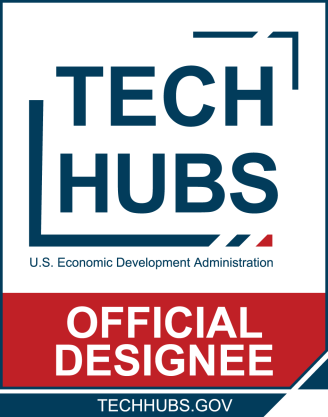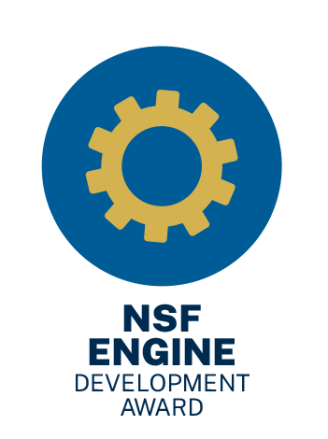Archived Awards Content
Awards issued prior to 2025 represent actions taken during previous administrations and do not necessarily reflect current investment priorities.
Kansas City BioSecure Manufacturing Tech Hub (KC BioHub)

Lead Agency: BioNexus KC
States Served: Missouri, Kansas
Applicant-Defined Region: Columbia and Jefferson City MSAs; Marshall, Warrensburg, and Sedalia μSAs (Missouri); Kansas City MSA (Kansas & Missouri); Lawrence, Manhattan, and Topeka MSAs; Ottawa, McPherson, and Atchison μSAs (Kansas); St. Joseph MSA (Kansas & Missouri)
Core Technology Area: Synthetic biology: development and manufacturing of biologic medicines and cancer therapeutics
Contact: Melissa Roberts-Chapman ([email protected])
Media Contact: Shaylee Yount ([email protected])
Organizational Link: https://kcbiohub.org/
Kansas City BioSecure Manufacturing Tech Hub (KC BioHub), led by BioNexus KC, aims to position eastern Kansas and western Missouri as a global leader in biomanufacturing for human and animal health, increasing domestic production of life-saving biologic medicines and cancer therapeutics, and protecting U.S. food supply. With the largest concentration of animal health and nutrition companies in the world, this Tech Hub will leverage the region’s animal health-focused biotechnology assets and existing biomanufacturing facilities, research institutions, and startup ecosystem to strengthen innovation in the development and manufacturing of biological medicines in animal and human health. The Tech Hub aims to increase overall domestic development and production and enable the United States to capture a larger global market share of cutting-edge human pharmaceutical development, currently dominated by foreign entities of concern.
The KC BioHub Tech Hub seeks to build a leading biologics and biomanufacturing innovation ecosystem by leveraging the Kansas City region’s strength in animal and human pharmaceutical development and manufacturing and expertise in biosecurity and biodefense.
This consortium plans to:
- Outfit a new “bench to clinic” facility where companies can manufacture small-scale batches of medicines for use in pre-clinical trials, a critical stage in the lifecycle of biotherapeutics companies, speeding up time to market for emerging technologies;
- Expand workforce opportunities by increasing life sciences career awareness for K-12 students, developing new apprenticeship, certificate, and degree programs, and forging new articulation agreements that recognize micro-credentials for credit;
- Develop and equip wet lab spaces for innovative, scaling biologics companies;
- Expand capital pools by educating investors in biotech growth opportunities and establishing a debt financing fund for high-potential entrepreneurs;
- Enhance researchers’ engagement with industry partners by improving relevant training, policies, and resources at the region’s leading research universities; and
- Leverage a governance structure to ensure stability of consortium members, establish a regional innovation office, promote follow-on investment in the consortium, and expand community awareness and private sector engagement.
To ensure that the impacts of the Tech Hub projects benefit the entire region, the consortium is committed to extending every project’s impact to the community through representation on Project Steering Committees, applying capital strategies that serve startups and small businesses, and focusing workforce development projects on training and placement for good jobs that don’t require a college degree.
This summary is based on information submitted by the applicants.
Additional Designations Earned in Region

